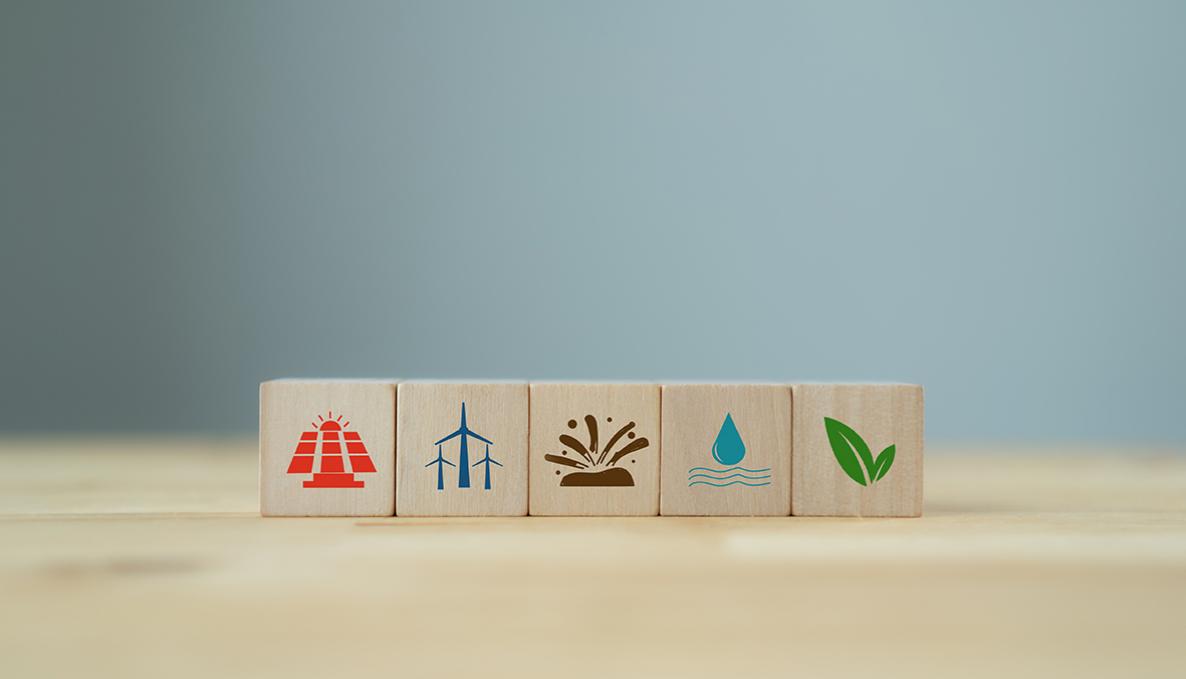Energy and resource efficiency (ERE)

Aim
The ERE (Energy and Resource Efficiency) research area analyses and supports decision-making processes of companies, public administrations and consumers for an efficient transition and management of resources and energy.
Research streams
The ERE research area uses qualitative-quantitative methods (questionnaire surveys, field experiments, case studies, Qualitative Comparative Analysis and others) to identify and analyse the factors and strategies of the processes of adoption of technologies and management solutions for the ecological transition and the decarbonisation by businesses, consumers and citizen communities; and to understand and govern the organisational and inter-organisational relationships within the value chains involved in the transition and the efficient management of resources and energy.
Main research projects
ERE is involved in various European and national research projects. LEAP-RE is an H2020 Europe-Africa cooperation project (LEAP-RE) to promote renewable energy sources through technology development support and the identification and preparation of management strategies and consumer and citizen engagement. CORALIS (H2020) develops and promotes long-term collaboration between companies through the activation of industrial symbiosis to reduce environmental impacts and climate-changing emissions and production costs. AFRICAMAVAL (Horizon Europe) supports the development of a sustainable Europe-Africa supply chain for critical raw materials. Furthermore, ERE adheres to the international EERA network through its participation in two Joint Programmes: ‘Geotermal Energy’ in which it delves into the socio-economic-environmental issues associated with the dissemination and application of technologies for the exploitation of geothermal energy; ‘clean Energy tranSition for Sustainable Society - e3s’ in which it provides its expertise in the analysis of factors that can contribute, consumer/citizen and business side, to the achievement of energy transition. D-SMART is a PRIN PNR project that identifies and analyses drivers for the integration of digital technologies into sustainable mobility solutions from both a B2C and B2B perspective.
Main publications
Büscher, C., Wheeler, W., Onyango, S., Varet, J., Iannone, F., Annunziata, E., Geraud, Y., Omenda, P. 2024. Create a Co-learning Environment for Geothermal Energy Communities Across the European and African Unions Open new browser tab, Crowther, A., Foulds, C., Robison, R., Gladkykh, G., Strengthening European Energy Policy, pp. 45-57. Palgrave Mcmillan Springer Nature.
Alosi, A., Annunziata, E., Rizzi, F., Frey, M. 2022. Conceptualising active management of paradoxical tensions in corporate sustainability: A systematic literature review. Business Strategy and the Environment. Doi: 10.1002/bse.3314.
Rizzi, F. Gigliotti. M., Annunziata, E. 2022. Exploring the nexus between GSCM and organisational culture: insights on the role of supply chain integration. Supply Chain Management, 1-24. Doi: 10.1108/SCM-07-2021-0326.
Mainar-Toledo, M.D., Castan, M.A., Millan, G., Rodin, V., Kollmann, A., Peccianti, F., Annunziata, E., Rizzi, F., Frey, M., Iannone, F., Zaldua, M., Kuittinen, H. 2022. Accelerating sustainable and economic development via industrial energy cooperation and shared services – A case study for three European countries. Renewable and Sustainable Energy Reviews 153, 111737, doi: 10.1016/j.rser.2021.111737.
Rizzi, F., Annunziata, E., Contini, M., Frey, M. 2020. On the effect of exposure to information and self-benefit appeals on consumer’s intention to perform pro-environmental behaviours: A focus on energy conservation behaviours. Journal of Cleaner Production, 270, 122039.
Contini, M., Annunziata, E., Rizzi, Frey, M. 2020. Exploring the influence of Corporate Social Responsibility (CSR) domains on consumers’ loyalty: An experiment in BRICS countries. Journal of Cleaner Production 247, 119158.
Annunziata, E., Rizzi, F., Frey, M. 2020. The supporting role of business models in the promotion of sustainable innovations in the energy sector: an explorative study in the Italian SMEs. Sinergie, 38 (3), 131-146, doi: 10.7433/s113.2020.08.
Pellegrini C., Annunziata E., Rizzi, F., Frey, M. 2019. The role of networks and sustainable intrapreneurship as interactive drivers catalyzing the adoption of sustainable innovation. Corporate Social Responsibility and Environmental Management 26 (5), 1026-1048.
Annunziata, E., Rizzi, F., Daddi, T., Frey, M. 2019. Business models for interfirm energy cooperation in industrial parks: A possible taxonomy. Economics and Policy of Energy and the Environment, 2, 133-148.
